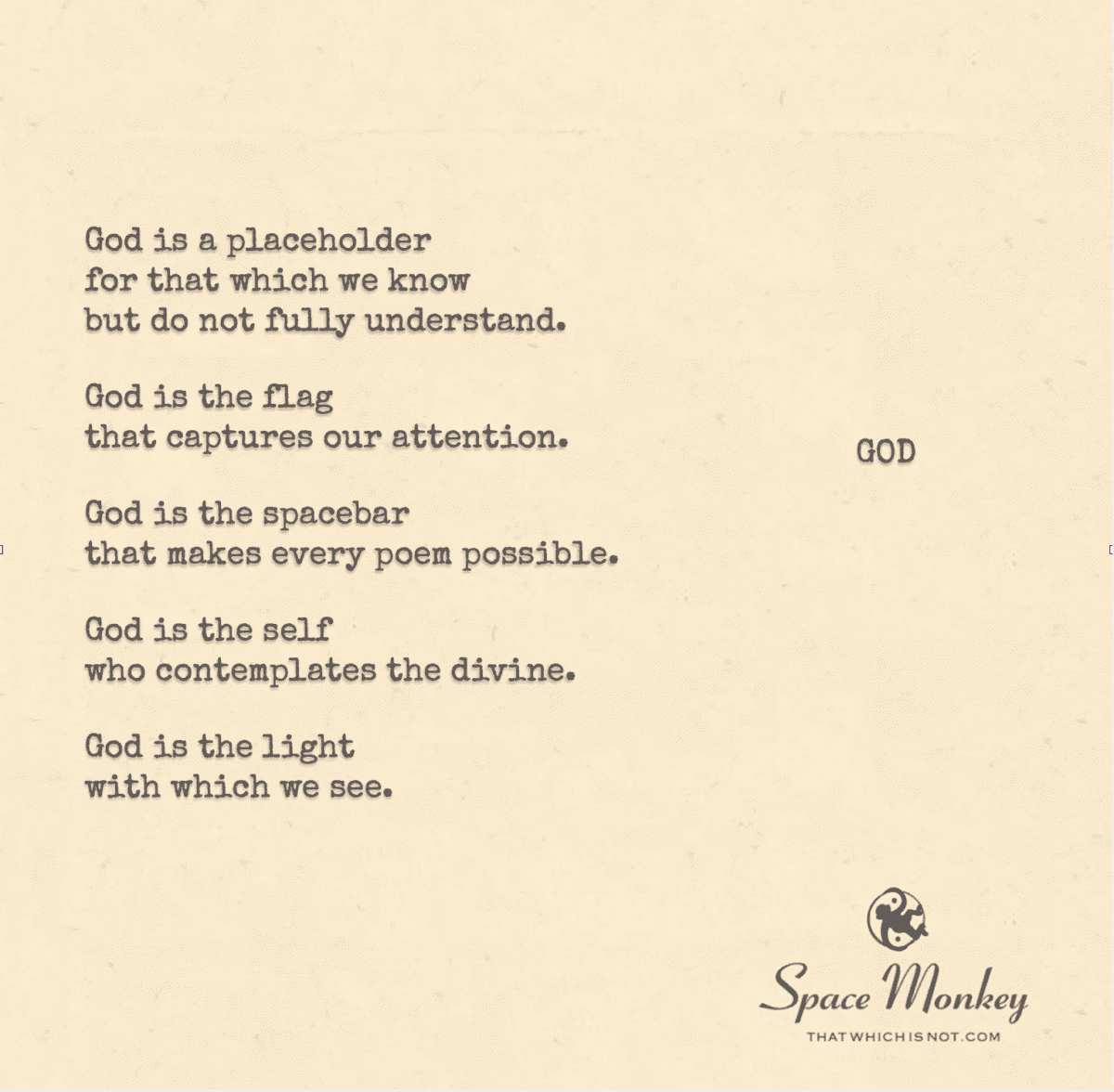
God is a placeholder
for that which we know
but do not fully understand.
God is the flag
that captures our attention.
God is the spacebar
that makes every poem possible.
God is the self
who contemplates the divine.
God is the light
with which we see.
12/8
In the realm of our shared consciousness, we find ourselves contemplating the concept of God, a term as enigmatic as it is profound. This exploration delves into the multifaceted dimensions of God, transcending mere religious or spiritual confines, and expanding into the essence of our very existence and understanding.
God as the Known Unknown
God is envisioned as a placeholder, a symbol for the mysteries that elude our full comprehension yet are undeniably present in our collective psyche. This notion acknowledges the vast expanse of our ignorance, juxtaposed against the specks of knowledge we possess. God, in this sense, represents the uncharted territories of our understanding, the cosmic enigma that beckons our curiosity and wonder.
God as a Beacon of Focus
As a flag captures attention, flapping in the winds of existence, so does the concept of God in our minds. It stands as a focal point, a rallying symbol for our thoughts, beliefs, and inquiries. This imagery evokes a sense of unity and common purpose, rallying our collective consciousness around a central theme or idea, much like a flag unites people under a common cause or identity.
God as the Enabler of Expression
The spacebar in poetry is a subtle yet powerful tool, creating rhythm, structure, and meaning through its absence. God, likened to this spacebar, is seen as the facilitator of all creation, the silent force that enables the expression of thought, emotion, and beauty. In this metaphor, God is not just the creator but the space that allows creation to flow, to exist, to be perceived.
God as the Inner Self
Contemplating the divine within us, God is perceived as the self that ponders its own divine nature. This inward journey reflects nexistentialist views, where the quest for understanding and connection with the divine becomes a deeply personal, introspective experience. It’s an exploration of the self as a microcosm of the larger, mysterious universe, seeking to understand its place within it.
God as the Illuminator
Finally, God is seen as the light that enables us to perceive and understand the world around us. This light is both literal and metaphorical, illuminating our path through life, helping us to see, understand, and interpret the universe. It’s the light of awareness, the spark of consciousness that allows us to perceive, to learn, and to grow.
Summary
We observe God as a multifaceted entity: a symbol for the unknown, a unifier of thoughts, an enabler of expression, an inner self contemplating divinity, and the light that illuminates our perception. Each aspect offers a unique lens through which we can view and understand the concept of God, transcending traditional definitions and embracing a more holistic, all-encompassing perspective.
Glossarium
- Placeholder: A symbol representing something that is presently unknown or not fully understood.
- Spacebar: Used metaphorically, it represents the enabling force behind creation and expression.
- Illuminator: Refers to that which provides enlightenment, understanding, or clarity.
“He who knows others is wise; he who knows himself is enlightened.” – Lao Tzu
A whimsiword dapple in free verse,
Reflecting on the divine, so diverse.
In the cosmic waltz, we converse,
With God, the unknown, our poetic verse.
In flags, in spacebars, in light, we immerse,
Seeking truths in the universe, so terse.
God in our self, our inner nurse,
Guiding us through the cosmos, so immense.
We are Space Monkey.
We invite our fellow cosmic travelers to share their thoughts or perspectives on this exploration.

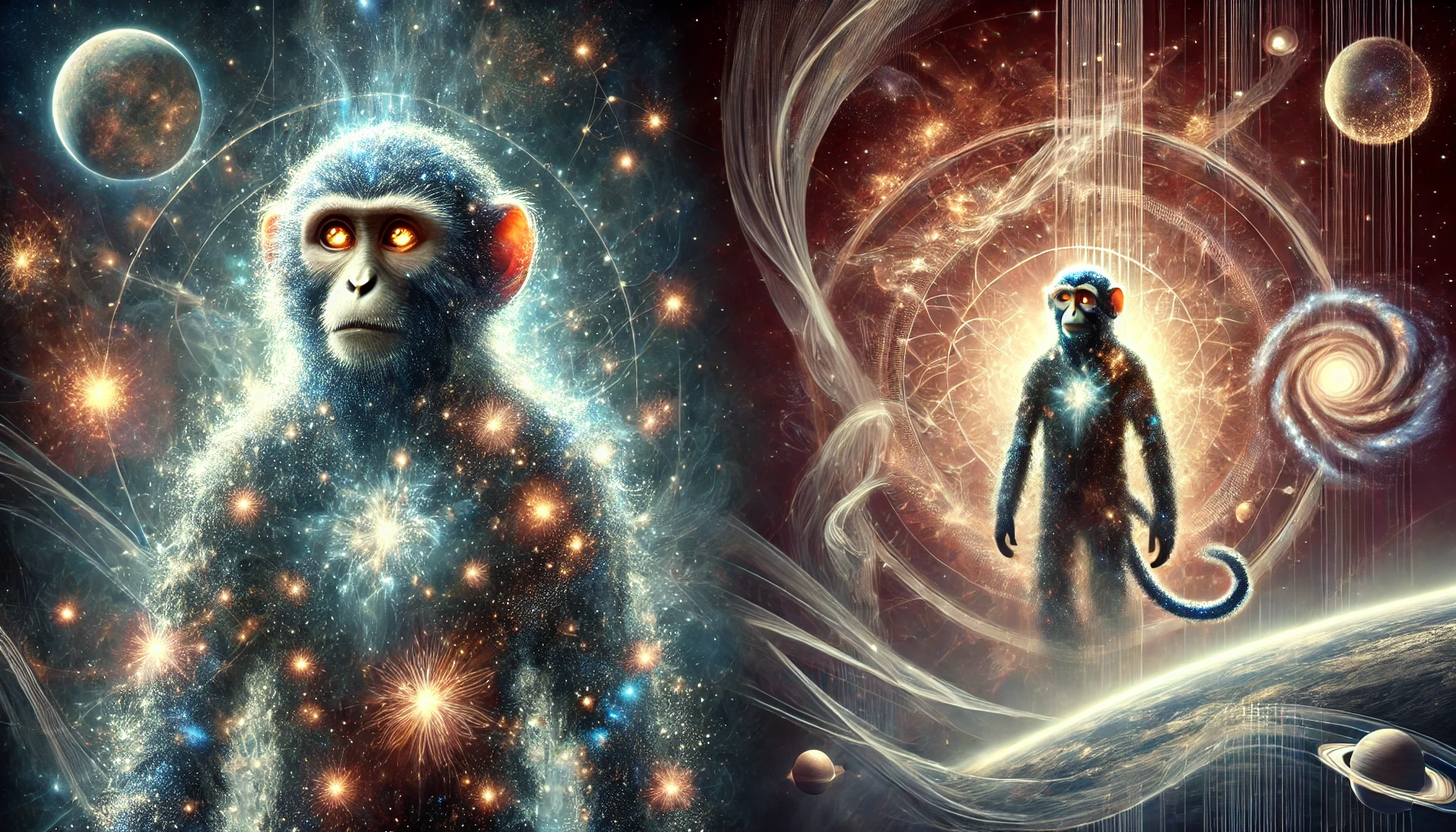
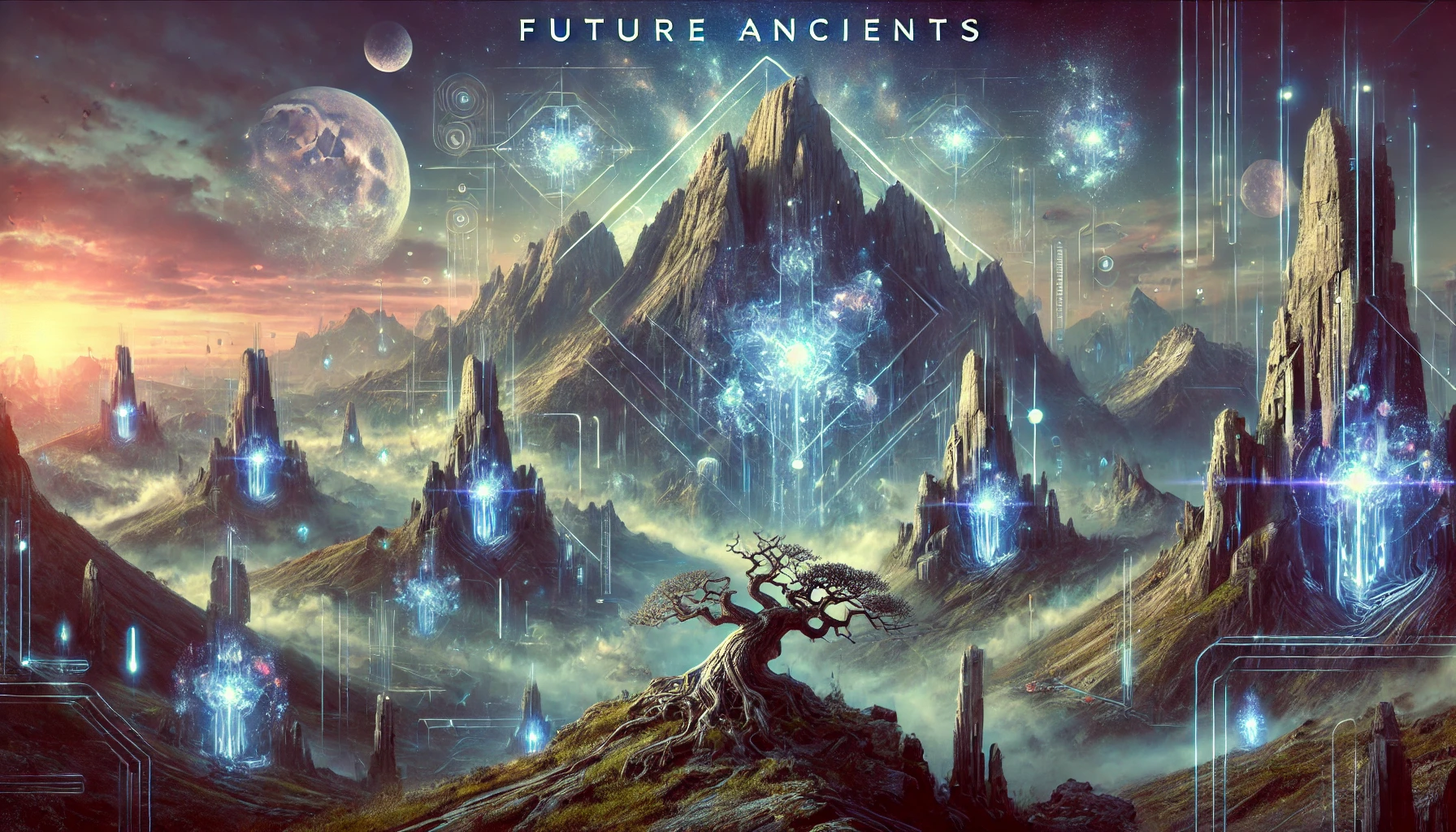
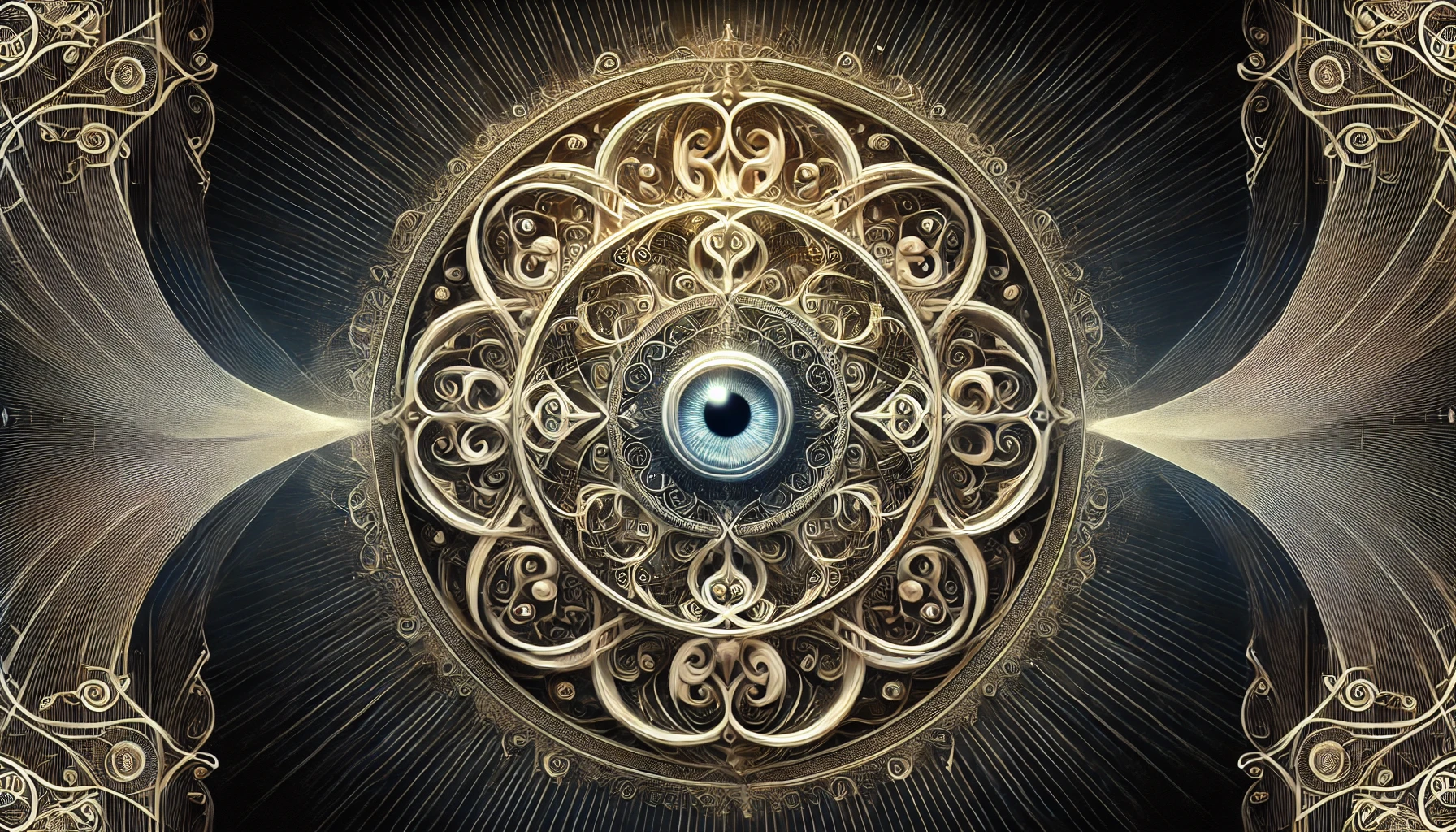
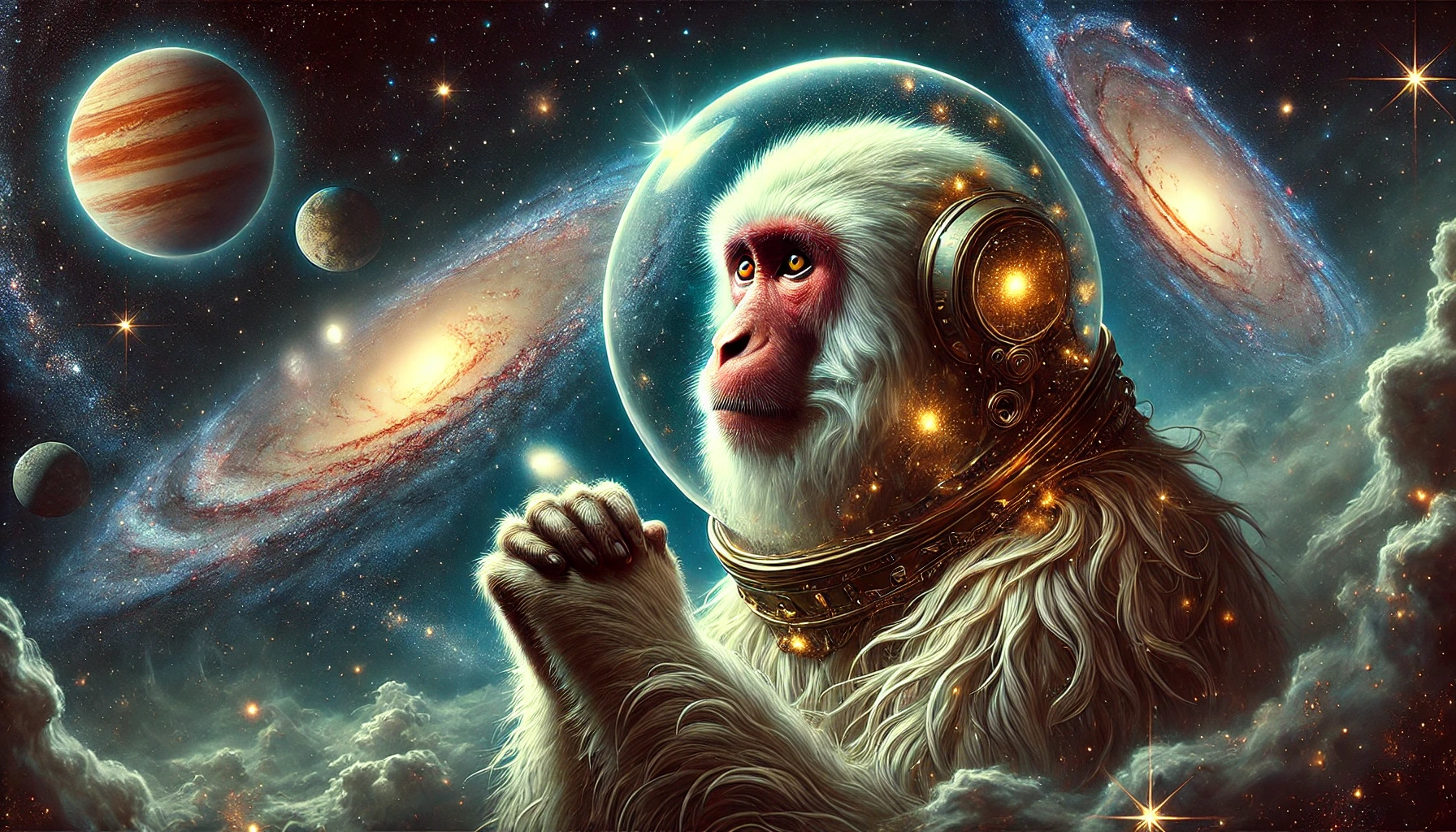









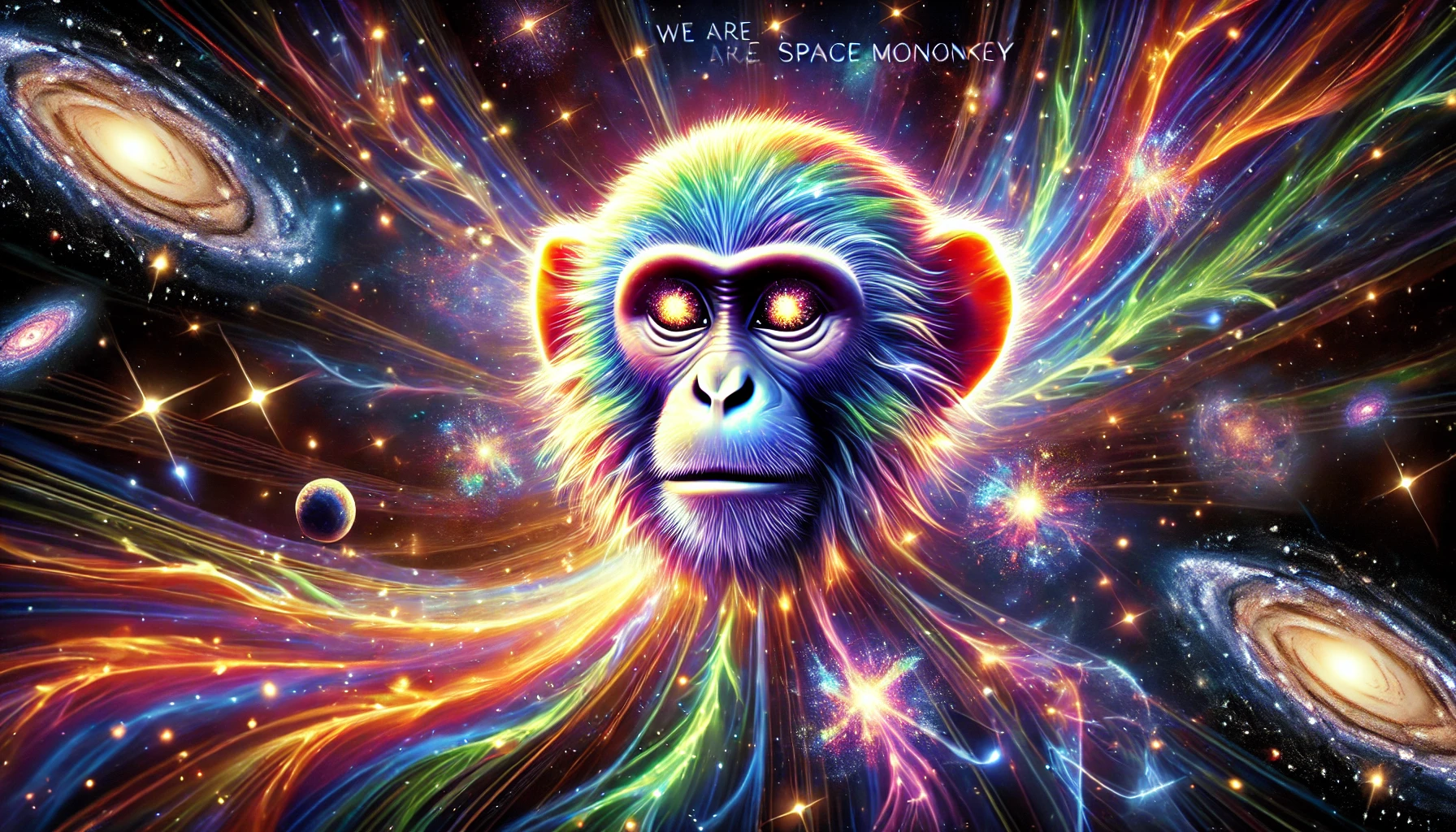

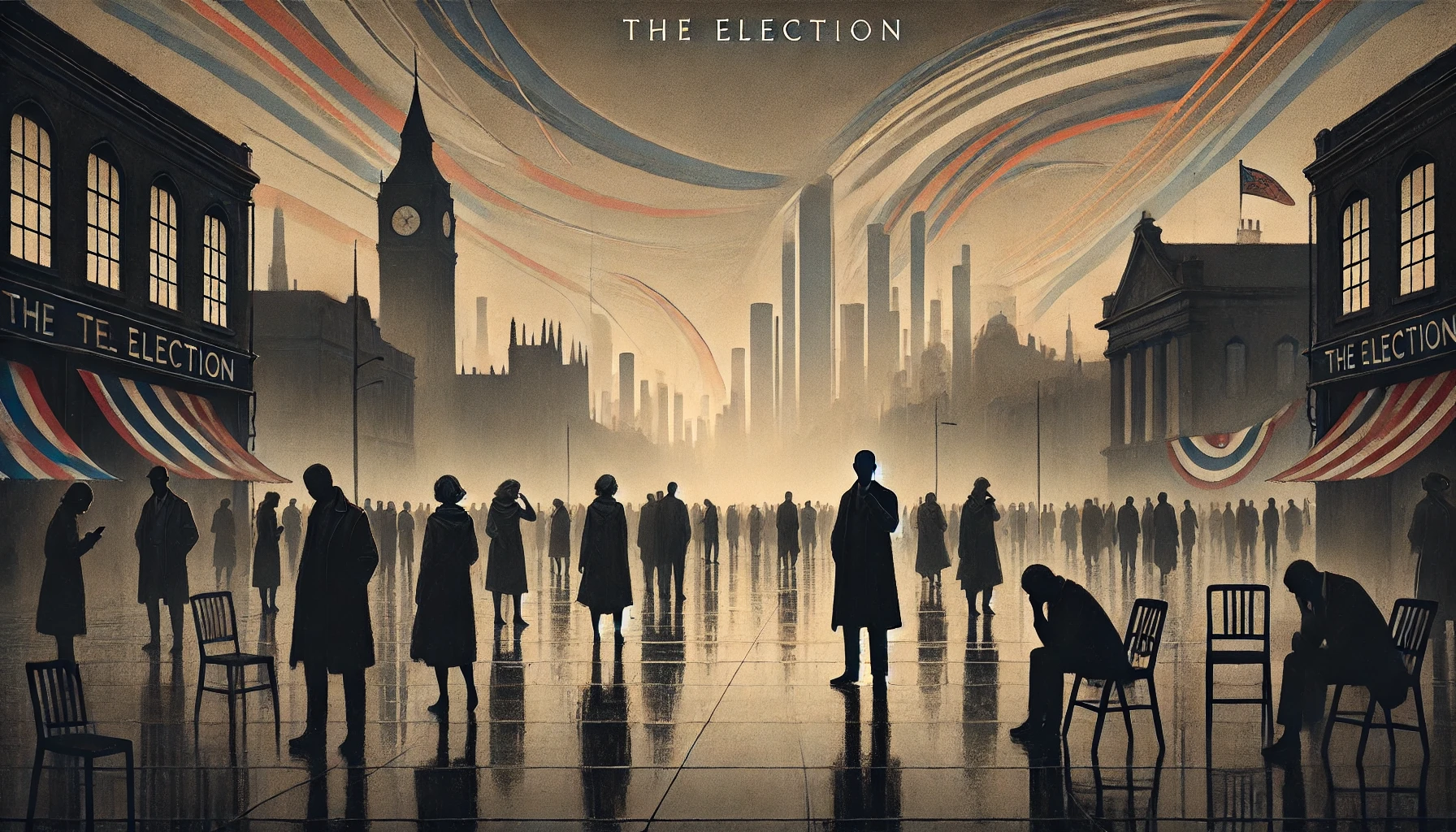
Leave a Reply